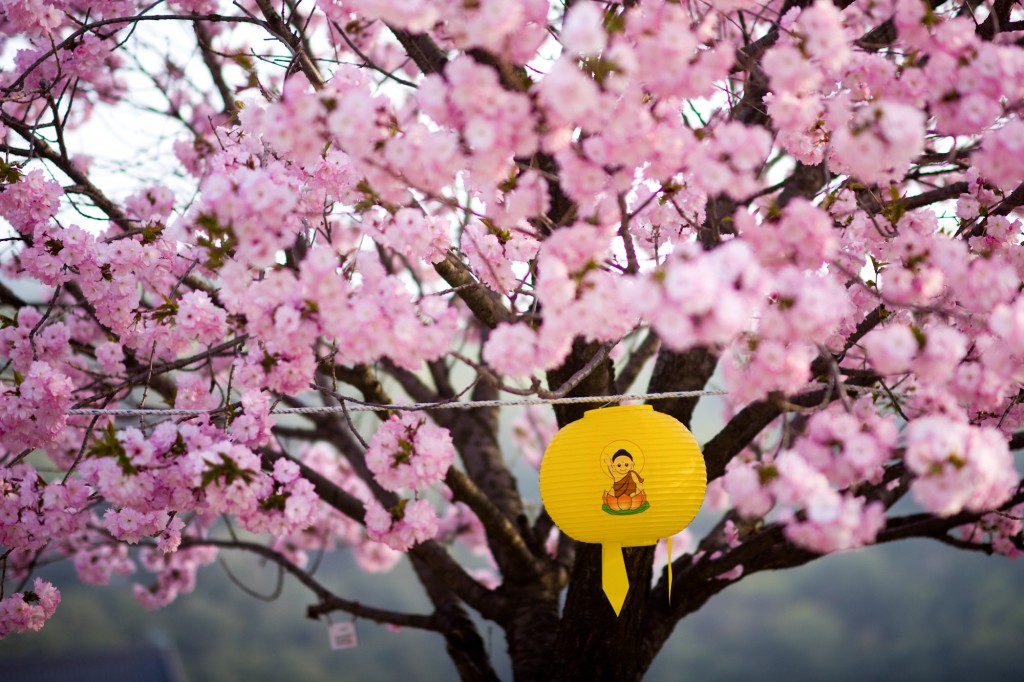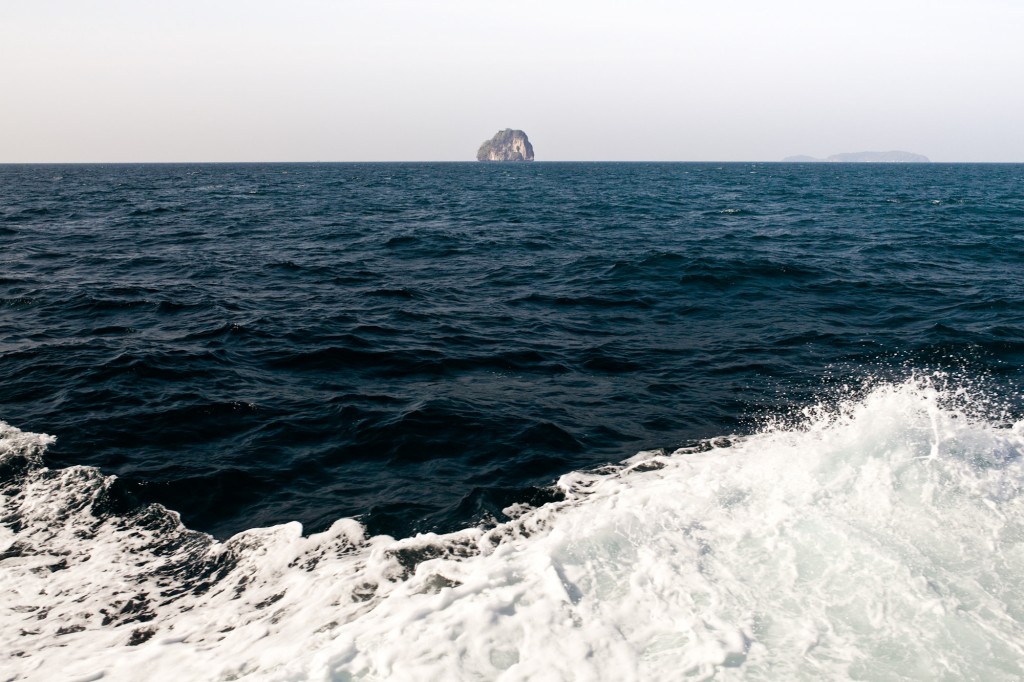Written by Yoon-Chan Kim

My colleague pops her head into my office to ask if I’ve heard. It’s about a boat in Korea. My mind skips a beat. I don’t think about boats very often. I furrow my brows: No, I don’t know. A boat with hundreds sank off the western coast.
When I hear anything related to Korea, scenes from childhood surface as pictures or short video clips: Mom guffaws over something Grandma says; I race up mahogany stairs to look at Grandpa’s vintage stamps; my brother and I watch our cousins fight; I glide on ice toward my imaginary Olympic gold in speed skating. All these whir by, like scenes from an old film projector.
Then I arrive at a second set of scenes. They feel a bit more urgent because they happened more recently.
My co-teacher flashes a smile and wishes me luck. He turns his back, walks out of the classroom and shuts the door behind him. Please welcome the new English teacher from America on his first day at this all-boys high school famous for its delinquency.
The silence sits, awkward and uncomfortable. Forty variations on my Korean face look back at me with wonder, fascination, indifference and distrust. I stand as the “American” intruding with a foreign tongue. They stand together like a worn-out platoon of proud and “true” Koreans, raised and maligned by the same land that bore them. They spent the last six months forging a class identity, so who was I to charge in with a pretense for pedagogy? The silence broods like when former lovers meet.
Ten minutes later, I’m standing outside with a student unafraid to voice his frustration. He interrogates me, trying to decode why someone with a face like mine and a name like mine would act as if he doesn’t know the mother tongue. His words fly at me, and I can’t grasp whether they are of vigor or venom. My inexperience sends him away to the discipline office, belying his sincerity and confirming my ignorance. The morning haze cuts through metal bars on windows and shows his sulking shoulders bobbing away in the distance.
A month passes.
I think I feel an inch more comfortable. I know where the clean bathrooms are and where to go for lunch. I think I can maybe do this for the next year. Until I catch a glimpse of the nudity.
He thought I wouldn’t notice, or it would be funny, or both. Yes, it’s very hot, so I understand it’s hard to focus. The fans are on and the windows are open though, so let’s just do the best we can. Yes of course, we’re all boys here, so you can take your uniform jackets off. But you just took all of your clothes off while sitting in your chair. I stop the lesson; I stop mid-sentence. The whole class turns to witness the silence, warm and sticky, like the bullets on my forehead. All eyes on him, then all eyes on me. Now we wait for the silence to break. But of course it doesn’t break. It waits. It waits with a grin, twisted and knowing.
Your move, Kim Teacher.
I send him outside and he takes his clothes with him. The silence leaves, but the grin stays.
Another month passes.
In the back, the class clown wields a wand at his group. Up in front, the dynamite nicknamed Napoleon dances around in his tiara. Today is Halloween, and with the weather a bit cooler and the foliage a bit brighter, it seems like a good day to put on some costumes and play some games. The gentle giant — six-foot-five and rotund enough to be either an American football player or a bear — lumbers forward to the front of the class. With an endearing smile and the respect of the entire school, he takes the black mask everyone dared him to try on. I’ll bet you candy money it won’t fit his head. He silences the crowd, picks up the mask and makes us all witnesses. Voilà. The class explodes with laughter. Cheers, shouts and pure delight rain, transforming a lesson on culture into a holy riot. I laugh like I haven’t in months.
The bell rings, and I walk out beaming. The art of pedagogy still eludes me, but the environment feels a bit safer. I walk back to the teachers’ lounge past familiar faces who have made me feel more welcome: the history teacher who tells me about his travels, the physics teacher who tells me about his daughters and the ethics teacher who tells me nothing. I arrive at my desk and smile at the English teachers who tell me more about the students we teach: their families, trials, compassion and courage.
Behind the student who interrogated me that first day slouches a home broken from abuse and neglect. Behind the student who took off all his clothes lives a family of nine in a two-bedroom apartment. Behind the class clown wielding the wand at his group waits a disabled younger sister who has inspired him to become a doctor. Behind the dynamite dancing in his tiara looms a father whose financial success has alienated him from his son. Behind the gentle giant stands a single mother working at two restaurants day and night just to support her son’s dream of becoming a professor of Korean history.
These were just five of the 600 students I taught. These were just five of the 600 students I loved.
More than 300 students were on that boat.
When I hear someone say anything about love, I often think that we believe love should come to us easily. I love your smile, I love the sunset. I love this symphony, that poem and the painting by Monet. Love can be effortless. We know it when we feel it, so we accept it without question.
I recall this in the scenes with my students. One of them beams after learning an American idiom. Another explodes with laughter seeing that the mask fits the giant. The student who interrogated me tries to hide his smile. Little Napoleon opens up in a rare moment of honesty and shares with me his worries, hopes and dreams before retreating once more to join his brethren. This love was always simple: deep, yes, but simple. I never questioned it. It was everywhere, vital and constant. It lit the hallways and electrified the air. You could feel it pulse even when school was out.
But ever since my colleague popped her head into my office, I have been wondering if this kind of love suffices. After all, it’s easy. It’s easy to see, easy to grasp, easy to feel. We don’t ever have to think about this kind of love. But I’ve been wondering if there is a deeper and more complicated kind of love, the kind we neither know how to talk about nor want to talk about.
I mean the kind of love that has a really dark side to it. I mean the harrowing stuff, the stuff that kicks you in the gut when you hear hundreds have drowned in a senseless tragedy, and then keeps its foot there long after you cry mercy. It’s the kind of love that leaves you regretting not having said I love you enough, wondering if you ever did enough, and doubting everything you ever believed in. It’s a love that decimates you, then sits on what’s left with the weight of a planet.
Now, I claim no authority over these issues. When I tell you today that I loved 600 students, I speak of a love more complex than I once imagined. It’s a love that feels obscure and heavy. It feels so vast and infinite. It forces me to grapple with things I don’t really want to, like seeing the students I adore in that scene off the western coast. It pains me because I can still see the 40 puzzled faces from that first day of class, feel that twisted silence, and hear the entire class laugh. I don’t want to consider something so horrifying. I don’t want to feel like I just lost hundreds of my own. Yet this kind of love demands that I wrestle with such ugly things. It demands that I wrestle with things like loss and regret, and sometimes I feel like I just don’t stand a chance. I don’t know how to “collect” myself or “pick up the pieces” or “move on” or “come to peace.” And I’m not even a parent. I never even taught them.
But maybe that’s exactly the point. Maybe I should feel the weight of a planet. Maybe I should wrestle with ugly things like loss and regret. Maybe I should feel like I don’t stand a chance, because when I tell you today that I loved 600 students, my love for them feels so vast and infinite, like the ocean or a night sky dripping with stars.
I have spent a lot of time in urban areas: Seoul as a child, northern California in my teens and the City of Angels too. One thing they have in common is that they are by the coast, so when you’re there, boats are never hard to come by. You see them bobbing along those sheets of blue.
But here in Ohio, you really don’t see them much. Sure, the lakes are just north, but boats just don’t grace this land-locked place. It’s hard to even think about them.
What you do get here, though, is a whole lot of sky. It stretches for miles, so when you whip your head around, you get to see the whole horizon surround you. Rays from dawn and dusk stretch like runways.
I’ve met a lot of people under this sky, including someone who introduced me to the works of American poet Billy Collins. In his collection “Questions about Angels,” Collins writes that those who have passed are:
…always looking down on us, they say,
while we are putting on our shoes or making a
sandwich,
they are looking down through the glass-bot-
tom boats
of heaven
as they row themselves slowly through eternity.[1. Collins, Billy. “The Dead.” Sailing Alone Around the Room. Random House, 2001. 33. Print.]
And when we look up
they think we are looking back at them,
which makes them lift their oars and fall silent
and wait, like parents, for us to close our eyes.[2. Collins 33]

I look up at the vast blue and wonder who they are. Maybe they are parents, waiting for us to fall asleep. Or maybe they are younger and a little less mature. Maybe they’re all together like a worn-out platoon, making fun of each other as they row alongside a dozen other platoons. And maybe when they’re lingering in silence with their oars out of the water, they’re waiting for us to close our eyes so they can paint stars in a vast and infinite night sky.
Dawn or dusk, I see them always. I see them working to build this beautiful scene. I hope they know it’s not always a bad thing that teachers have eyes in the back of their heads.
Yoon-Chan Kim was a 2010-2011 ETA at Youngsaeng High School in Jeonju. He now works in college admissions in northeast Ohio.
Footnotes:
